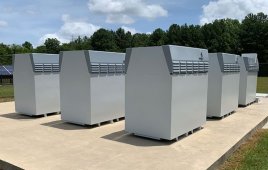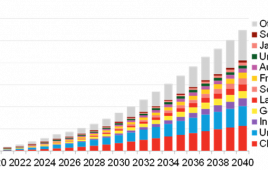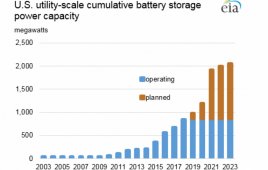The New York State Energy Research and Development Authority (NYSERDA), the Electrification Coalition, and Energetics Incorporated recently announced that the City of Rochester and five organizations have signed a pledge to increase access to electric vehicle charging stations for their employees. The pledges are part of Rochester’s Electric Vehicle Accelerator initiative, a pilot project launched last spring to assist the City of Rochester to become the state’s first electric vehicle model city.

The initiative supports Governor Andrew M. Cuomo’s ambitious goal to reduce greenhouse gas emissions 40 percent by 2030 and complements “Finger Lakes Forward,” the region’s economic blueprint aimed at attracting a talented workforce, growing business and driving innovation.
The city and five organizations (Dixon Schwabl, Larsen Engineers, Nazareth College, Rochester Institute of Technology, and SunCommon NY) will be recognized at the Passport to Workplace Charging & Electric Vehicle Showcase tonight being co-hosted by the Greater Rochester Chamber of Commerce and the Rochester Electric Vehicle Accelerator at Radio Social.
“By increasing the number of charging stations at workplaces, local organizations are making it clear they want to reduce greenhouse gas emissions and make their local communities healthier,” said Alicia Barton, President and CEO, NYSERDA. “I applaud those who have signed the pledge for showing real leadership by supporting this initiative which will help us meet Governor Cuomo’s ambitious goals to combat climate change while advancing the economic growth and community development priorities of Finger Lakes Forward.”
The Rochester Electric Vehicle Accelerator is supported by NYSERDA and is being led by the Electrification Coalition in collaboration with the City of Rochester, Genesee Region Clean Communities, and Energetics Incorporated. The goal is to demonstrate how the development of a full electric vehicle ecosystem approach can increase electric vehicle adoption and prepare a community for long-term electric vehicle growth.
Since the initiative was launched, the city has purchased six electric vehicles to add to the four it already had in its fleet and the partnership has hosted 300 electric vehicle test drives for consumers, participated in more than a dozen festival and outreach events, and is currently identifying potential sites for charging stations throughout the city to be installed later this year.
As part of the pilot, a Workplace Charging Challenge Pledge was created for local organizations. By signing the pledge, organizations agree to conduct assessment surveys and develop site plans to determine their needs and potential locations for electric vehicle charging stations. Combined, these organizations already have about 30 charging stations available for their employees with the city providing 12 public charging stations. The goal is to increase the number of electric vehicles on the road and build an electric vehicle infrastructure to support these purchases.
“Greater Rochester Chamber of Commerce is committed to helping our members stay on the cutting edge of innovation and sustainability in today’s competitive world. Workplace charging allows employers to increase the convenience and affordability of driving electric for their employees, which plays a role in attracting and retaining top talent,” said Bob Duffy, President and CEO of Greater Rochester Chamber of Commerce.
To further encourage and support electric car adoption, Governor Cuomo recently announced his State of the State proposal to increase the number of charging stations across New York by the end of 2021. Under the Governor’s Charge NY 2.0 initiative, at least 10,000 charging stations will be made available and the State will expand clean fuel corridors so clean cars can travel throughout New York’s interstate system and recharge at convenient locations.
Charge NY aims to have 30,000 to 40,000 electric cars on the road by the end of 2018. New York has already met this target having sold more than 30,000 electric cars as of the end of November 2017. In addition, the number of public charging stations has grown from about 500 in 2011 to almost 2,000 statewide.
Filed Under: Energy storage




